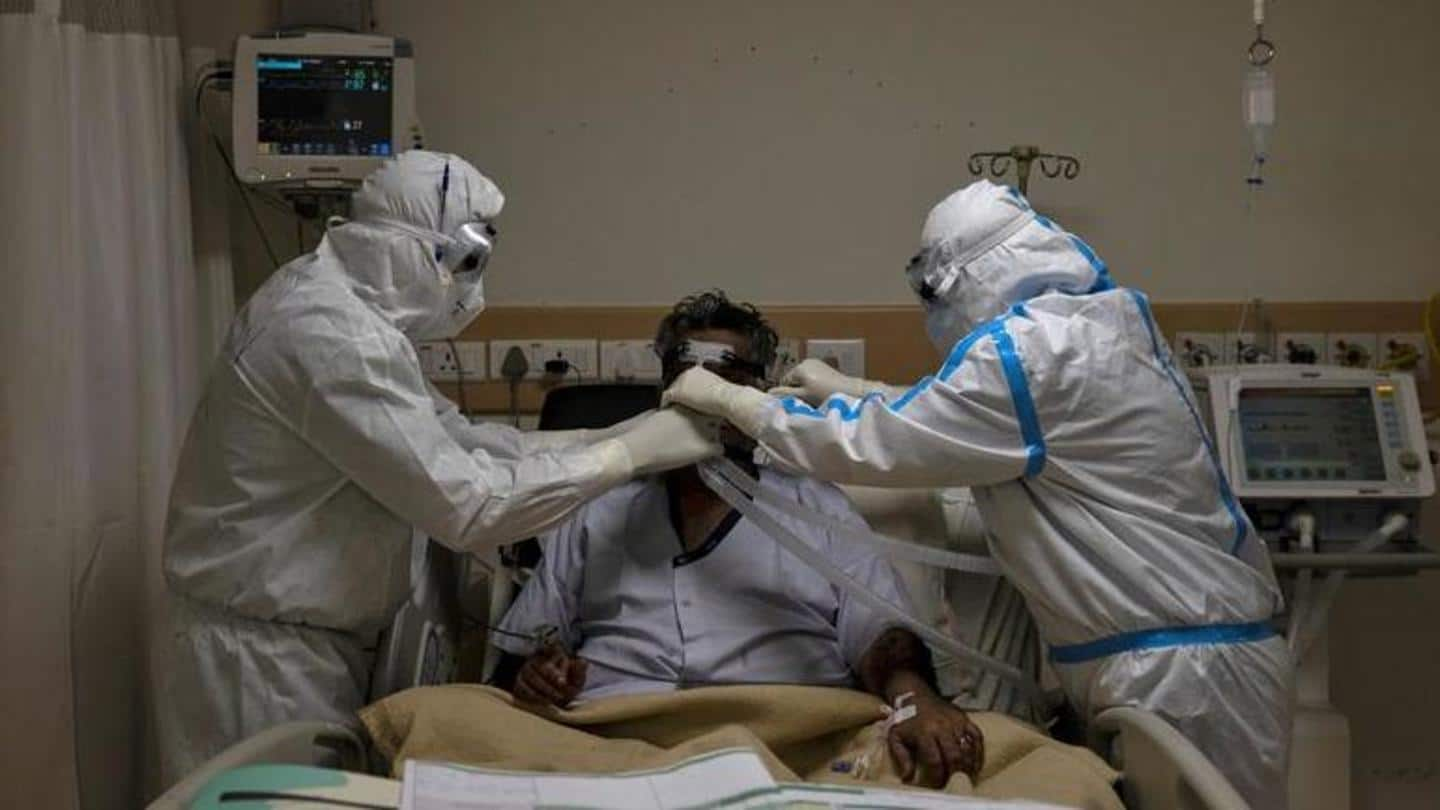
Sustainable pricing model could've avoided more COVID-19 deaths: Parliamentary panel
What's the story
A Parliamentary panel on Saturday observed that many COVID-19 deaths in India could have been averted by a sustainable pricing model.
The Parliamentary Standing Committee on Health and Family Welfare has submitted a report on India's COVID-19 response, titled Outbreak of Pandemic COVID-19 and its Management, to Rajya Sabha Chairperson M Venkaiah Naidu.
Here's more on what the report said.
Report
'Purpose not to criticize government, but highlight implementation gaps'
Prof. Ram Gopal Yadav, Chairperson of the committee, said in the report, "The purpose of the report is not to criticize the government's course of action in combating the pandemic but to identify the implementation gaps during the course of executing its contingent plan."
Notably, this is the first report by any Parliamentary committee on the government's handling of the COVID-19 pandemic.
Health
Government's spending on healthcare 'abysmally low'
The number of government hospital beds were "grossly inadequate" and "instances of patients being turned away from overburdened hospitals...became the new normal."
The report said the government's spending on healthcare was "abysmally low" and recommended increasing it, along with taking "appropriate steps to decentralize the healthcare services/facilities in the country."
The closure of OPDs (outpatient departments) also "crippled the healthcare delivery system."
Information
'Non-COVID patients, especially women, were worst sufferers'
The report said, "...non-COVID patients especially female patients and the patients with chronic and lethal diseases were the worst sufferers." Diagnosis and treatment of other services took a backseat which led to many non-COVID deaths, it added.
Health
Healthcare spend drove many families below poverty line
The panel said out-of-pocket expenditure on health "may have further driven many families to below poverty line."
The government "should've strategized a better partnership with the Private Hospitals under PPP model."
Free COVID-19 treatment under PMJAY provided a "sigh of relief to entitled beneficiaries and the economically-weaker sections of the society."
It recommended minimizing out-of-pocket expenditure and updating beneficiaries' details on PMJAY's IT system.
Surveillance
'Poor contact tracing in earlier stages increased infections'
The panel said that "poor contact tracing and slow testing in the initial phase of pandemic led to the increased number of infections."
It observed the failure of the National Centre for Disease Control-Integrated Disease Surveillance Programme (NCDC-IDSP) in generating an adequate response.
It recommended launching IDSP in states other than the nine where it currently operates.
Information
'Glaring lapses' in emergency supplies, quality of testing kits, etc.
The panel noted that while it appreciates measures such as the janata curfew, "there have been [a] few glaring lapses... like shortage of emergency supplies, red-tapism, shortage and quality of testing kits, delay in domestic production."
Frontline workers
Panel anguished over mistreatment of ASHA workers
The panel said it was anguished over instances of mistreatment of Accredited Social Health Activist (ASHA) workers engaged in contact tracing. It observed that they were denied wages despite being "foot soldiers of the healthcare system."
"The Committee strongly advocates for strengthening the network of ASHAs, ANMs (Auxiliary Nurse Widwives), and other community health workers."
There's an "urgent need for capacity building," it added.
Women
Pandemic impacted women's social and mental well-being
The panel observed that the pandemic affected women's social and mental well-being, and also disrupted their access to healthcare, especially sexual and reproductive healthcare services.
The lack of access to contraception led to "many unwanted pregnancies and unsafe abortions."
It also observed that instances of domestic violence increased during the COVID-19 lockdown, recommending the rehabilitation of such victims.
Children
Panel expressed concern over confinement of school-going children
The panel expressed concern over the "confinement of the school-going children due to prolonged closure of education institutions" and the digital divide which has "jeopardized the future of millions of students from the weaker section of the society."
The government should "strengthen its network for digital and online classes and once the normal classes resume," also proposing extra special classes for economically/socially weaker sections.
Mental health
'Considerable rise in mental health issues during lockdown'
It noted a "considerable rise in mental health issues during the lockdown."
Social isolation and sudden loss in employment aggravated the psychological burden, it observed.
It said the "increased risk of suicide during the pandemic which may be attributed to social isolation, fear of the pandemic, loss of livelihood and other economic and health fallouts," advising the prioritization of mental health and suicide prevention.